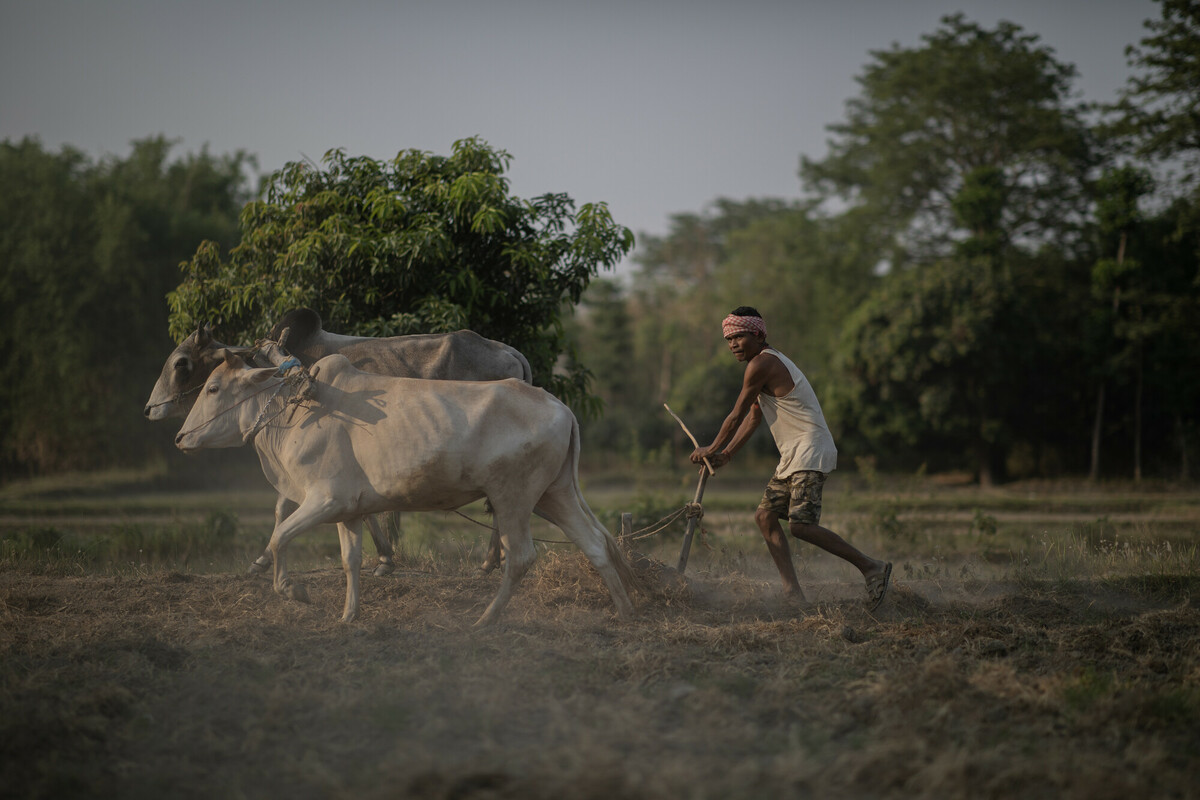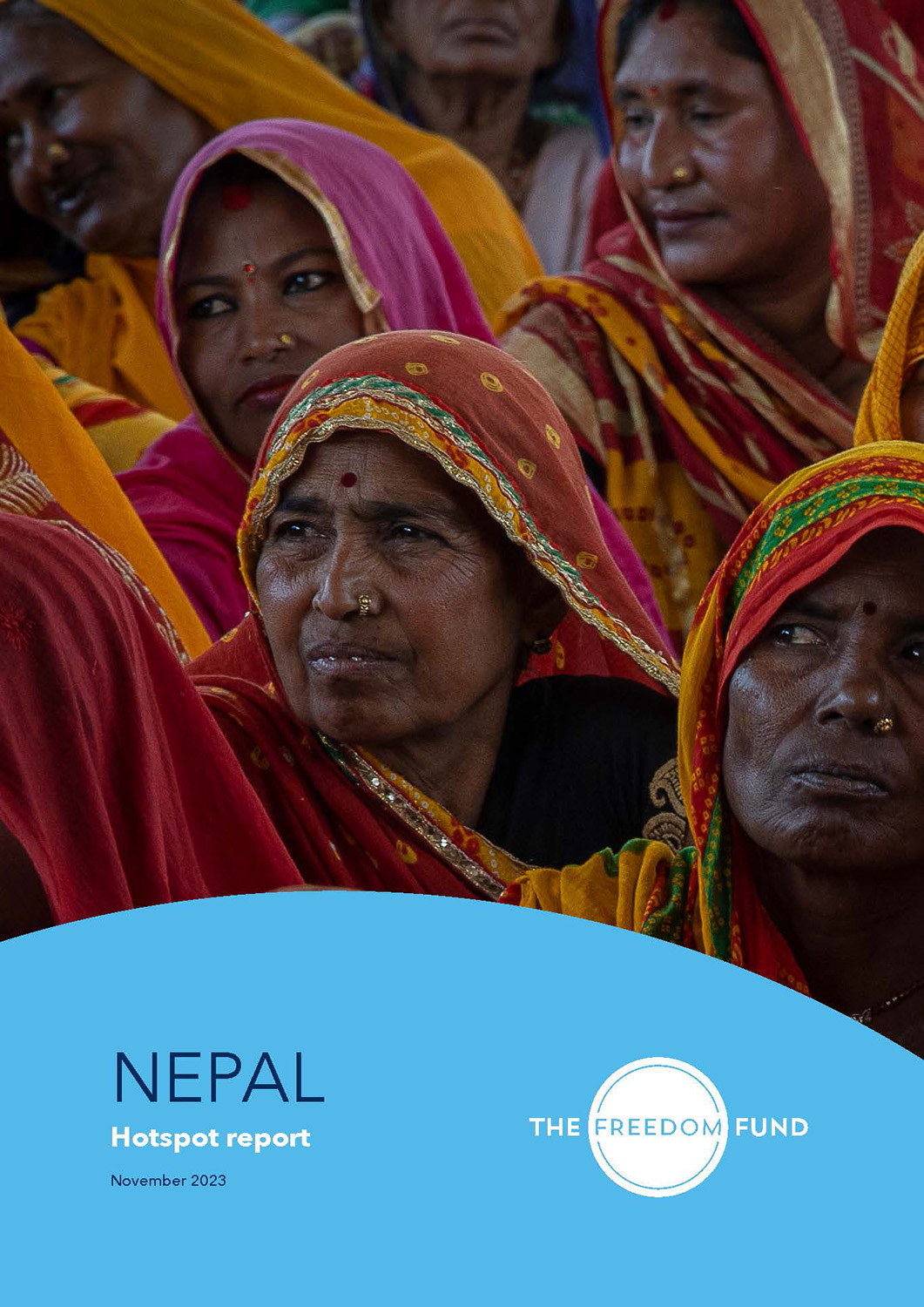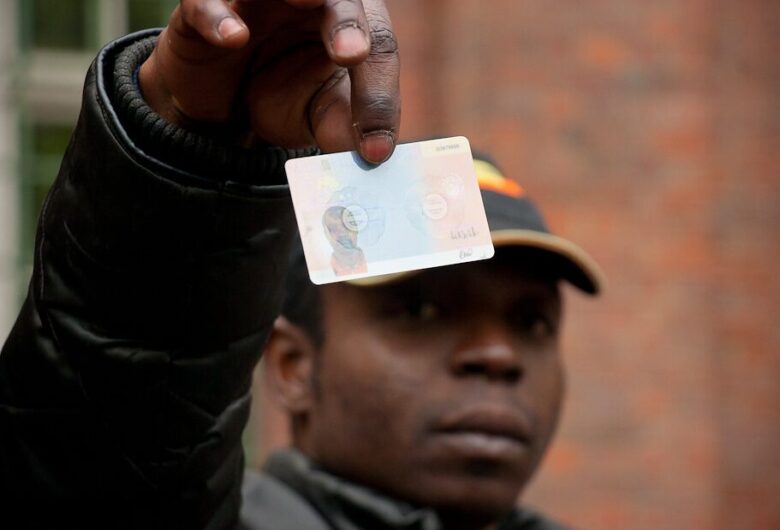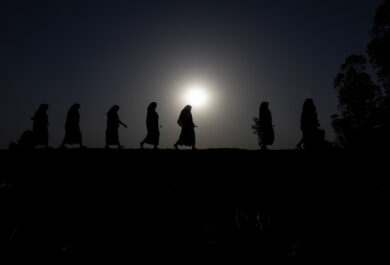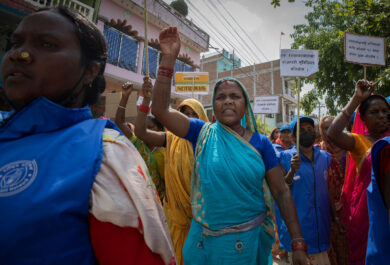Key information
- Hotspot launch
- November 2014
- Total investment
- $8,869,301
- Lives impacted
- 79,494
- Focus areas
-
- Bonded labour
What we do
In 2014, the Freedom Fund began supporting a group of frontline organisations and survivor representatives in Nepal in their campaign to free families trapped in an intergenerational system of agricultural bonded labour called Hawara-Charawa. Support for this movement, led to the creation of the Harawa-Charawa Rights Forum.
Since 2021, the hotspot increasingly focused on building a survivor-led national effort against bonded labour, expanding its focus to working with the Kamaiya and Haliya freed bonded labour communities.. This led to the formation of a united movement against bonded labour, the Struggle Committee. The united movement’s organising and campaigning helped culminate in the government of Nepal signing the liberation of the Harawa-Charawa in July 2022.
Today, we join these communities to advocate for rehabilitation, calling for government action to have their loans cleared, access to land, a house to live in, employment and higher education opportunities.
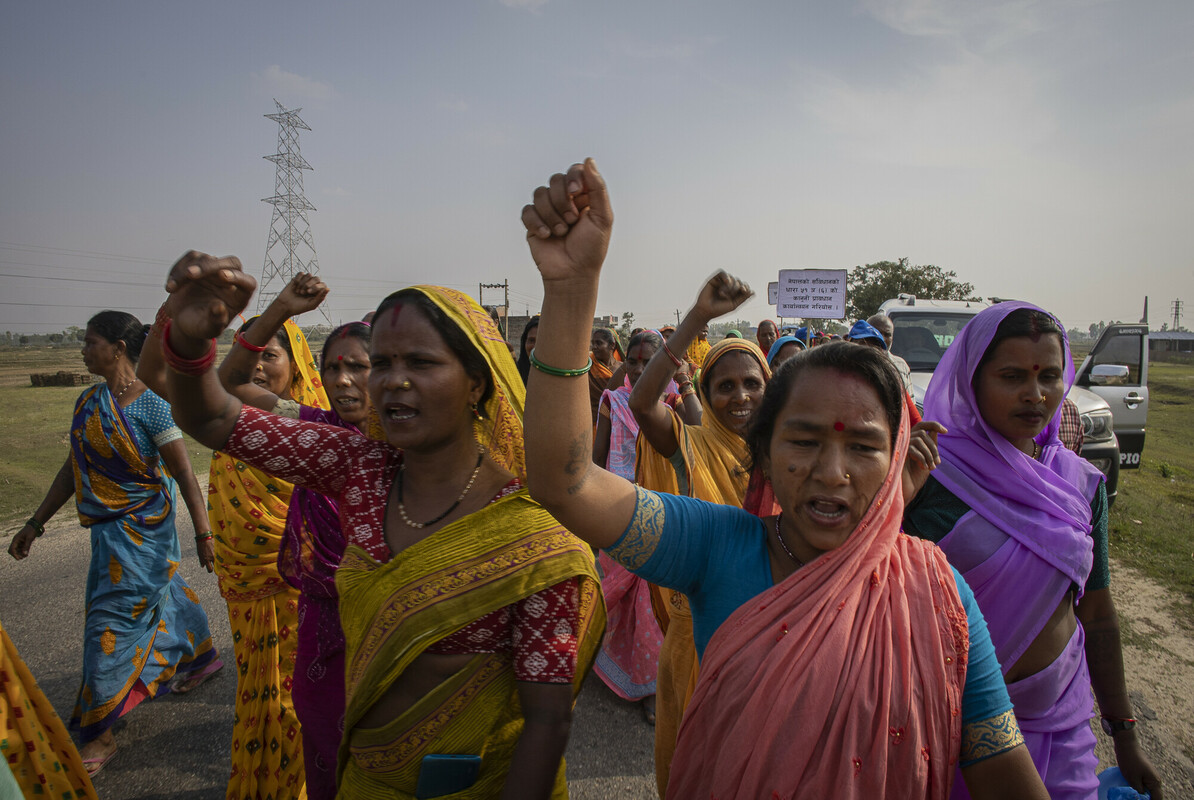
A historic breakthrough
In July 2022, The Government of Nepal announced the liberation of the Harawa-Charawa, is significant breakthrough in the campaign to free generations who have been trapped in poverty through bonded labour. Supported by local partners, the survivor movement continues to work towards their liberation being turned into a reality and is advocating for the government to deliver upon its commitments to provide rehabilitation packages to the communities who continue to be affected by bonded labour.
The Harawa-Charawa's liberation
There is no joy without freedom, and this announcement will bring much relief and happiness to more than 100,000 Harawa-Charawa people.
- Dashan Mandal, Chairperson of the Harawa-Charawa Network
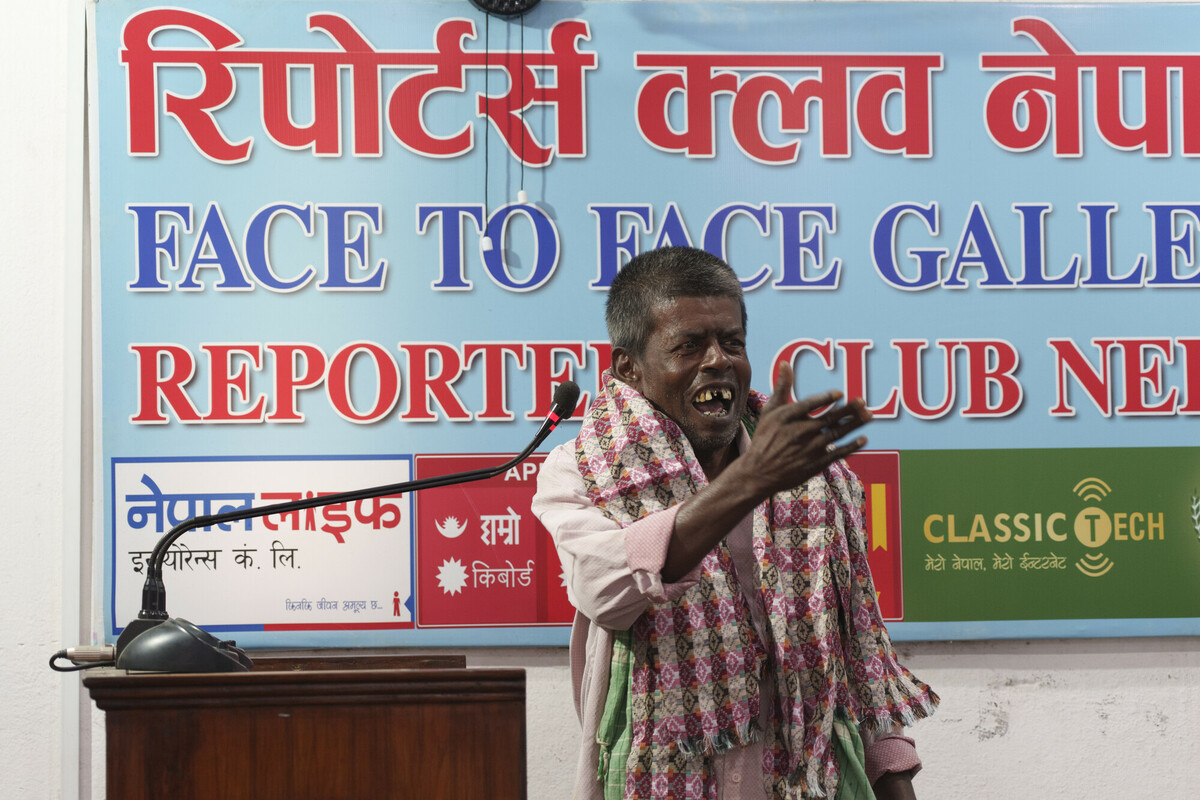
Who we work with
The practice of Harawa-Charawa has deep historical and cultural roots, often intertwined with indebtedness and associated with land tenure system and social structure. A Harawa is a person compelled to work in a landlord’s field, undertaking tasks such as plowing or other designated agricultural work. A Charawa is a person who works as cattle grazers for the landlords. The work in exchange for loan, grain, a small, cultivated piece of land, or shelter within a bonded arrangement.
Comprising generations of marginalised Dalit communities, the Harawa-Charawa typically have lacked the freedom to leave work, options for alternative employment and fixed working hours, and received insufficient or no wages (whether in cash or in-kind) for their labor. Unable to escape the cycle of debt, they face poverty, physical abuse, and threats of expulsion from their homes and the land they are share-cropping.
The Haliya are an agricultural bonded labour group residing in 12 western districts in Provinces 6 and 7. The Haliya were formally recognised as free from bonded labour by the government of Nepal in September 2008. Anti-Slavery International estimated that there were 118,800 Haliya in Nepal as of 2018, many of whom have not received the government rehabilitation package and remain at risk of bonded labour.
The Kamaiya, a traditional bonded labour group found mainly in western Nepal, were officially recognised as a freed group and their debts cancelled by the Nepali government in July 2000, following a successful Kamaiya advocacy movement. However, following a slow and arduous rehabilitation process, many Kamaiya families also remain highly vulnerable and at risk of falling back into bonded labour or new forms of exploitation.
